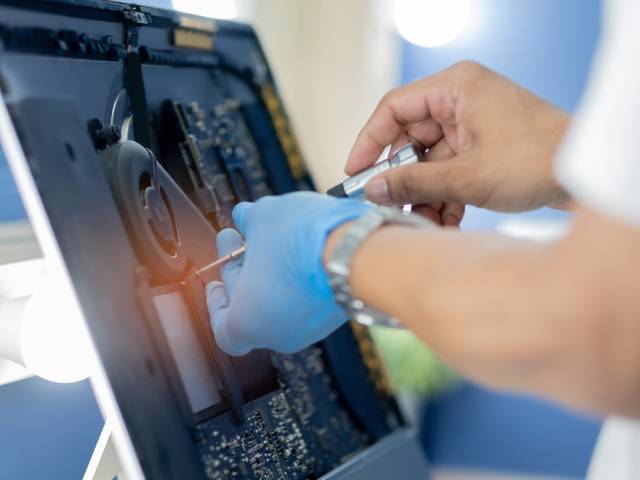
Healthcare professionals know the value of precision and reliability when it comes to working with patients, but how often do we think about this aspect of healthcare equipment? Regular maintenance is crucial for ensuring that these medical devices work as intended for patients. To understand why, let’s explore routine maintenance and how you should prioritize it in every healthcare setting.
Patient safety is paramount in healthcare, and well-maintained medical equipment plays a vital role in this. Imagine the risks associated with using malfunctioning equipment during critical procedures. Regular maintenance minimizes these risks by ensuring that all devices function correctly. Whether it’s an MRI machine, a ventilator, or a simple blood pressure monitor, every piece of equipment must be in top-notch condition to provide accurate and reliable results. Device performance directly impacts the quality of care and trust patients place in healthcare providers.
Medical equipment is a significant investment for any healthcare facility. With routine maintenance, you ensure that the equipment works properly and prolong its lifespan. In the same way that your car needs regular oil changes and tune-ups to run smoothly, medical devices require periodic checks and updates. Plus, preventive maintenance can catch potential issues before they become major problems, saving you from costly repairs or replacements down the line. In the long run, this process not only cuts costs but also ensures that sudden equipment failures don’t disrupt your facility.
It’s no secret that the healthcare industry is highly regulated, and compliance with these standards is non-negotiable. Regular maintenance ensures that your equipment meets all relevant regulations, such as those set by the FDA, Joint Commission, and other governing bodies. These organizations often require documented proof of maintenance, and failure to comply can result in fines, legal issues, or even the loss of accreditation. By keeping up with routine maintenance, you safeguard your facility from these risks and ensure uninterrupted, high-quality care for your patients.
Now that we understand the importance of routine maintenance for medical equipment, let’s discuss how to implement it effectively. First, create a schedule for regular checks and maintenance tasks based on the manufacturer’s recommendations. Next, designate trained personnel or outsource to qualified technicians for these tasks. Processes such as properly maintaining an ultrasound machine aren’t always easy, so you’ll want to make sure you have someone who knows what they’re doing handling it. Finally, document all maintenance activities and keep detailed records of any repairs or replacements. These records are crucial for compliance and serve as a guide for future maintenance needs.
24World Media does not take any responsibility of the information you see on this page. The content this page contains is from independent third-party content provider. If you have any concerns regarding the content, please free to write us here: contact@24worldmedia.com